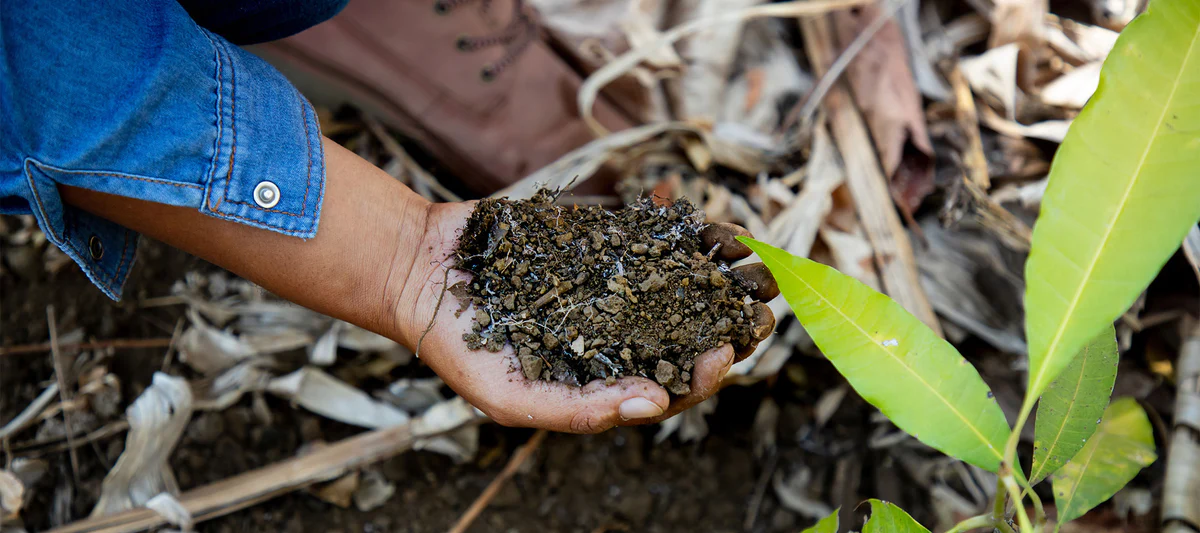As the world’s population continues to grow, so does the demand for food. At the same time, climate change is making it more difficult to produce food in traditional ways. This has led to a growing interest in regenerative agriculture, which aims to not only meet the world’s food needs but also mitigate climate change. Regenerative agriculture practices can help in improving soil health and sequestering CO2, which can help to slow down climate change. This blog will explore regenerative agriculture and how it can help farmers around the world to produce food without contributing to climate change. We will also explore how Nature Bio Foods (NBF) is contributing to expand its regenerative organic agriculture practices in India and discuss how you can incorporate more regenerative agricultural practices into your daily life. Let’s get started!
What is regenerative agriculture?
Regenerative agriculture is a holistic approach that focuses on improving the health and well-being of both people and the planet. The basic idea of regenerative agriculture is that some of the soil’s carbon may be lost through erosion and other processes. A regenerative farm would take steps to stop this loss, such as planting cover crops or incorporating manure into the soil. This agriculture practice utilizes natural systems and carbon-based cycles to create resilient and regenerative systems that are capable of sustaining themselves without the need for human intervention. Key practices include the use of rotational grazing to promote biodiversity and increase soil fertility, cover cropping to improve soil quality and reduce erosion, and composting to build soil and sequester carbon. These methods help to restore the soil health and provide a natural habitat for plants and wildlife to thrive. By encouraging a healthier soil ecosystem, we are not only creating a healthier food supply for ourselves; we are also helping to protect our environment for future generations.
Regenerative organic agriculture as a solution to climate change
There are a number of reasons why regenerative organic agriculture is seen as a promising solution to climate change. First, it helps to rebuild soil health, which is essential for mitigating the effects of climate change. Second, it improves water retention, which is important in regions that are experiencing drought due to climate change. Finally, it increases biodiversity, which helps to make ecosystems more resilient in the face of changes brought about by climate change. The United Nations Food and Agriculture Organization (FAO) has also stressed the importance of agroecology–a farming system that relies on traditional knowledge and practices, as well as modern science–in mitigating climate change.
NBF advancing regenerative organic agriculture practices in India
Regenerative organic agriculture is a type of farming that focuses on rebuilding the soil. There are many benefits to adopting regenerative agricultural practices, including improved water retention, higher crop yields, reduced erosion, and increased organic matter in the soil. In order to reap the same benefits in India, Nature Bio Foods farms over 2898 acres of organic land certified by Regenerative Organic Alliance. We provide resources, training, soil testing and mentorship directly to farmer partners through its field experts, webinars and community events.
We know if our food system continues with current conventional practices, using synthetic pesticides, artificial fertilizers, fossil fuels and producing food waste, the carrying capacity of the planet is likely to be surpassed. Therefore, adopting regenerative organic farming will not only lead to a healthier ecosystem for the planet’s flora and fauna but also make agriculture environmentally sustainable. We recognize its importance as a farmer’s reduced reliance on fertilizers and pesticides can also save them money and increase yields per acre. NBF’s over 1000 farmer partners who grow organic crops as per ROA laid standards are not just contributing to soil and land health but also getting paid fairer prices for the crop yields.
NBF encourages regenerative agriculture practices that improve the food security of local communities by withdrawing their reliance on synthetic chemicals and reducing the costs of production. Moreover, regenerative agriculture also improves the resiliency of agricultural systems by reducing their vulnerability to climate fluctuations and other disasters.
Regenerative food system
Like anything else, the food we consume is only as good as the ingredients used to make it. And those ingredients are only as good as the soil in which they are grown. That’s why regenerative farming is so important. Regenerative farming improves the food we consume by using organic methods to restore nutrients to the soil. This results in food that is significantly more nutritious than food grown using traditional methods. Not only is regenerative-farmed food more nutritious, it is also healthier overall. This is because regenerative farming practices help to rebuild the soil’s microbiology, which has a direct impact on human health.
Conclusion
Though still in its early stages of development, regenerative organic agriculture has already shown promise as a more sustainable way of producing food. We find regenerative farming a mini-revolution in not only in organic farming but also climate change. Because in addition to being better for the environment, regenerative agriculture has the potential to produce high-quality food that is richer in nutrients. As we learn more about regenerative agriculture and its benefits, it is likely that this type of farming will become increasingly adopted by farmers around the world. Therefore, it is important to continue to support regenerative agriculture so that we can help reduce the effects of climate change and create a more sustainable future for our planet.



